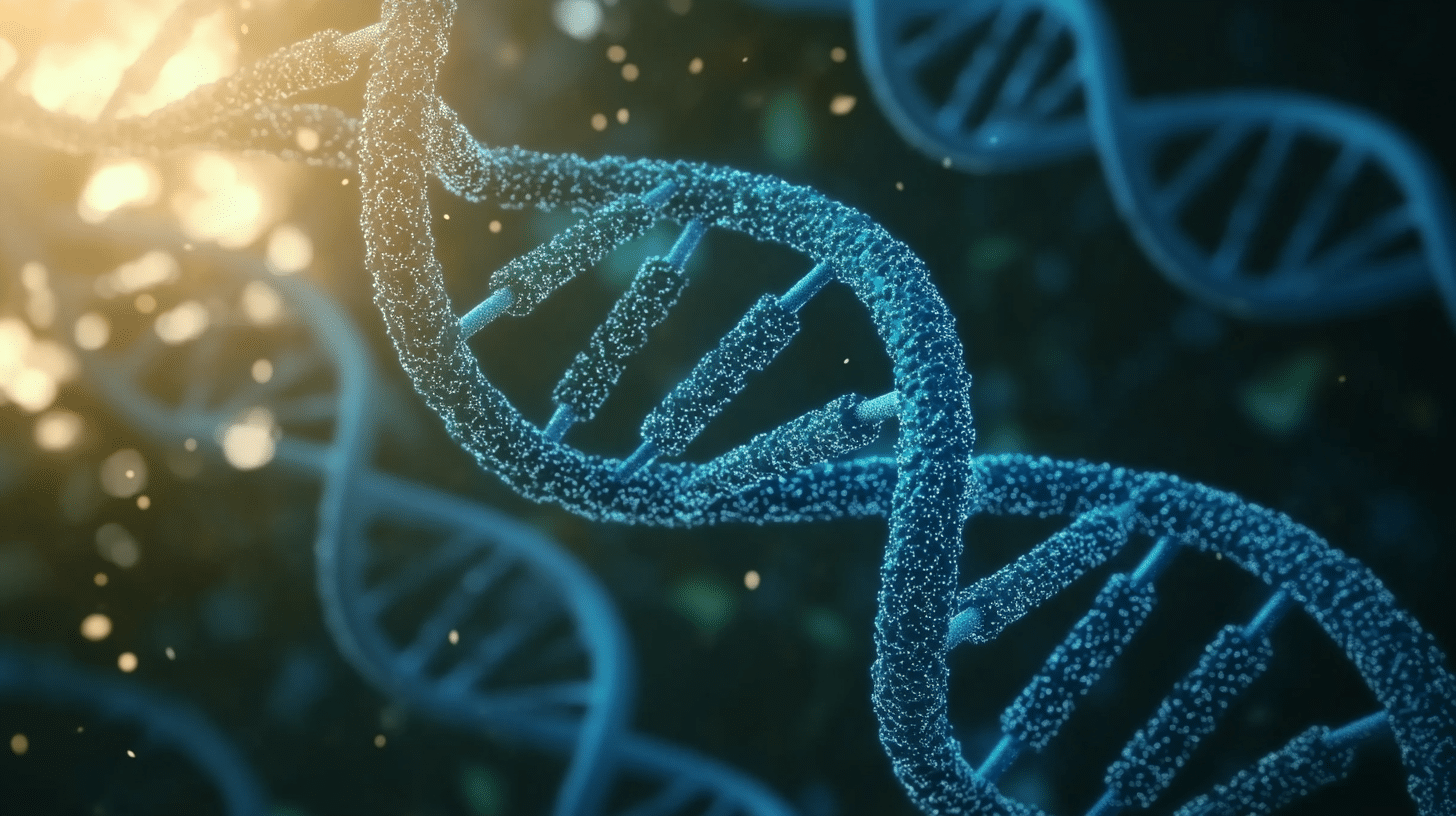
Genetic Testing
Personalized Strategies for Effective Weight Management Based on Your Unique Genetic Blueprint
Genetic testing for weight loss has emerged as a valuable tool for individuals seeking to tailor their weight management strategies to their unique genetic makeup. Genetic testing can help individuals understand how their bodies respond to different diets and exercise regimens by analyzing specific genes associated with metabolism, appetite, and weight gain. This personalized approach goes beyond traditional weight loss methods by recognizing that each person’s biological framework affects their ability to lose weight and maintain a healthy lifestyle. As interest in personalized health solutions grows, genetic testing can enhance weight loss efforts, promote long-term behavioral changes, and improve overall wellness. Understanding the genetic factors can empower individuals to make informed decisions, ultimately leading to more effective and sustainable weight management strategies.

Personalized Plans
Genetic testing has revolutionized weight loss management by enabling the development of personalized plans explicitly tailored to an individual’s genetic makeup. By analyzing DNA insights, individuals can uncover important information about how their bodies respond to different nutrients, exercises, and weight loss strategies. This enables a customized approach that accounts for unique genetic factors affecting metabolism, food cravings, and fitness preferences, which traditional weight loss plans often overlook.
The benefits of such custom-tailored plans are significant. They empower individuals to align their nutrition and fitness routines with their genetic predispositions, leading to more effective weight management. Instead of following generalized diets or exercise regimens, these personalized plans provide a clear roadmap to success based on individual health goals and physiological responses. This tailored approach increases motivation, making adhering to weight loss strategies easier, as they are designed to work with each person’s body rather than against it.
Leveraging DNA insights helps individuals better understand their unique needs, simplifying achieving and maintaining optimal weight loss outcomes. These plans can also address personal challenges such as slow metabolism or high food cravings, fostering more sustainable lifestyle changes.

Genes and Metabolism
Genetics plays a crucial role in metabolism, influencing various processes such as fat storage, energy expenditure, and overall health outcomes. Specific genetic factors can determine how efficiently an individual metabolizes fats, impacting their susceptibility to weight gain and obesity. For example, particular genes regulate triglyceride levels, affecting how fats are stored and processed. Elevated triglycerides can lead to an increased risk of coronary heart disease, underscoring the importance of understanding these genetic influences in weight loss management.
In addition to fat metabolism, genetics also shape how the body responds to different nutrients and dietary patterns. Some people may have a genetic predisposition to benefit from higher carbohydrate diets, while others might succeed with low-carb or high-protein approaches. These genetic differences also extend to how the body handles specific nutrients like omega-3 fatty acids or gluten, influencing weight loss results and overall well-being. Genetic testing can help personalize diet recommendations by revealing which foods and nutrients align best with an individual’s genetic makeup.
The metabolism of substances like caffeine is also genetically influenced, with some individuals metabolizing caffeine more quickly than others. This variability can affect energy levels and exercise performance, making it vital for individuals to tailor their fitness regimes accordingly. For instance, fast caffeine metabolizers might experience a boost in performance from caffeinated beverages before workouts, while slow metabolizers may face increased anxiety or jitteriness.

Genetic Influence on Weight Loss
Genetic testing is crucial in understanding how genetic factors influence weight loss. Research shows that our genes can determine individual predispositions to weight gain, affecting metabolism, fat storage, and appetite levels. Individuals can gain insights into their unique physiological responses to different diets and exercise regimens by identifying specific genetic markers. This approach allows for a more personalized strategy toward weight loss that addresses the underlying genetic components that may contribute to weight challenges.
Genetic testing can uncover personalized information about dietary preferences and exercise suitability. For instance, some individuals may have a genetic predisposition that influences their appetite levels, making them more prone to overeating. In contrast, others might respond better to specific macronutrient compositions like low-carb or high-protein diets. By understanding how one’s genes interact with food and exercise, a tailored weight loss plan can be created, enhancing the effectiveness of the strategies employed. This customized approach can help individuals achieve better results than generic weight loss plans.
By aligning weight loss efforts with genetic insights, individuals are more likely to succeed in achieving their weight management goals while minimizing frustration and trial-and-error approaches. Instead of trying multiple diets or exercise plans that may not work, individuals can focus on scientifically backed methods tailored to their genetic makeup. This leads to more sustainable weight loss, better health outcomes, and a more positive experience overall, reducing the common pitfalls of traditional weight loss programs.
Embrace Effective Weight Loss with Genetic Testing
Genetic testing offers a powerful way to unlock your body’s potential and achieve sustainable weight loss by understanding your unique genetic makeup. This personalized approach allows you to create tailored nutrition and fitness plans that align with your body’s needs, enhancing the effectiveness of your efforts. By addressing the genetic factors influencing metabolism, appetite, and fat storage, you can overcome common challenges in weight management. To take the next step in your weight loss journey, contact Medical Health Solutions today and schedule a consultation. Call (303) 951-8617 to learn how genetic testing can transform your approach to weight management.
We provide weight loss services for these Lone Tree, Colorado areas:
Lone Tree, Acres Green, Belvedere, Bluffmont Estates, Carriage Club, Centennial Ridge, Club Terrace, Country Club Estates, Cypress Green, Douglas County, Fairways At Lone Tree, Heritage Estates, Heritage Hills, Lincoln Square Lofts, Masters Park, Montecito, Prominence Point, Ridgegate, Taos of Lone Tree, Terra Ridge, The Fairways, and Wildcat Ridge.
We also provide weight loss services for Edgewater, Colorado and these surrounding areas:
Edgewater, Wheat Ridge, Arvada, Westminster, Granite, Golden, Englewood, Littleton, Broomfield, Dupont, Commerce City, Morrison, and Henderson.
We also provide weight loss services for these Denver, Colorado areas:
Denver, Baker, Capitol Hill, Central Business District, Cheesman Park, Cherry Creek, City Park, City Park West, Civic Center, Congress Park, Country Club, Lincoln Park, North Capitol Hill, Speer, Union Station, Belcaro, Cory-Merrill, East Colfax, Hale, Hilltop, Indian Creek, Lowry, Montclair, Park Hill, Virginia Village, Washington Virginia Vale, Windsor, Clayton, Cole, Elyria-Swansea, Five Points, Globeville, North Park Hill, Skyland, South Park Hill, Whittier, Central Park, Gateway, Green Valley Ranch, Montbello, Northeast Park Hill, Auraria, Berkeley, Chaffee Park, Highland, Jefferson Park, Regis, Sloan Lake, Sunnyside, West Highland, College View, South Platte, Overland, Platt Park, Rosedale, University, University Hills, University Park, Washington Park, Washington Park West, Wellshire, Goldsmith, Hampden, Hampden South, Kennedy, Southmoor Park, Southwest, Bear Valley, Fort Logan, Harvey Park, Harvey Park South, Marston, West, Public housing in Sun Valley., Athmar Park, Barnum, Barnum West, Mar Lee, Ruby Hill, Sun Valley, Valverde, Villa Park, West Colfax, and Westwood.






